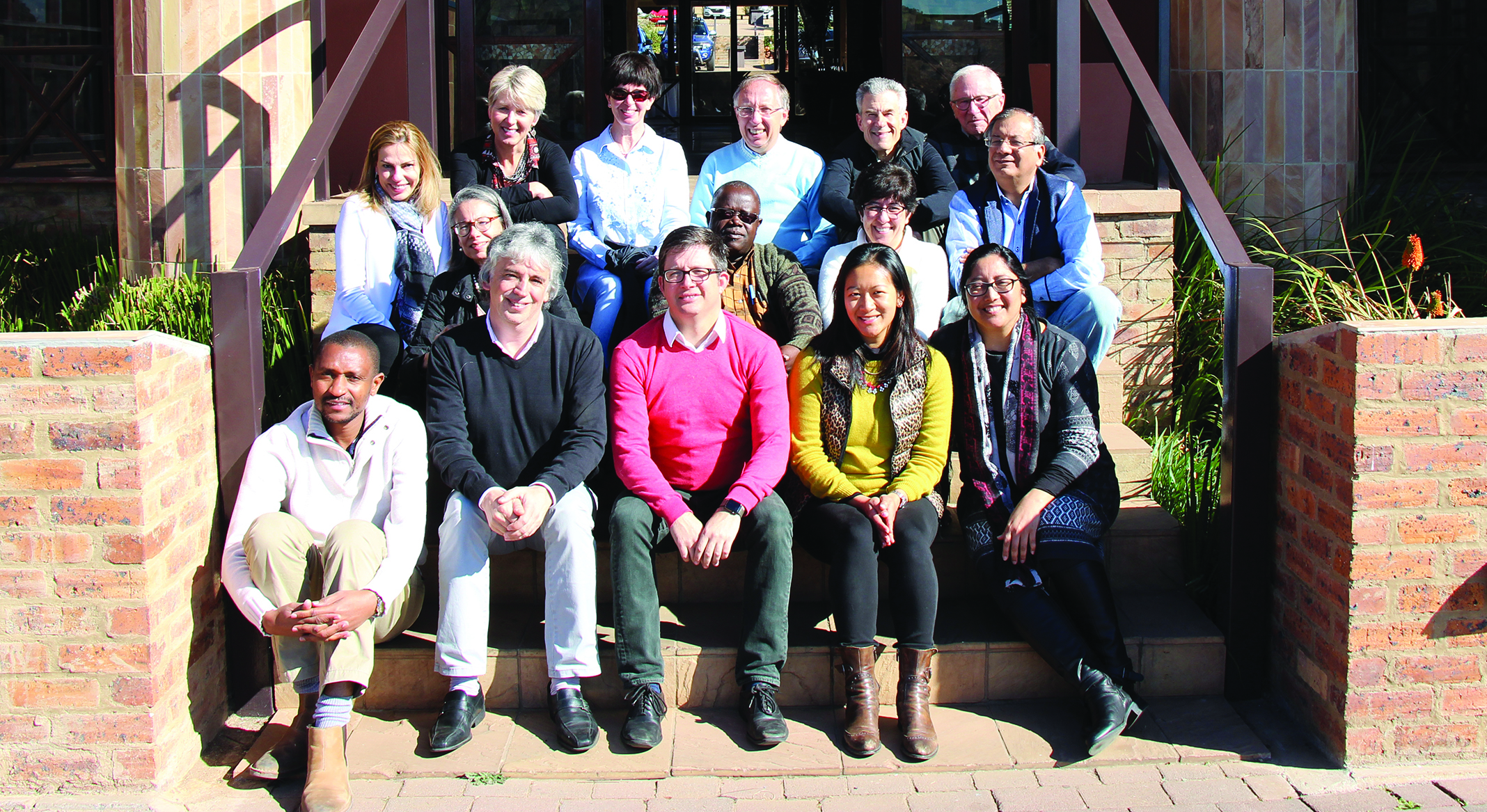Fall 2017 (Volume 27, Number 3)
Juvenile Idiopathic Arthritis Management in Developing Countries
By Mercedes Chan, MBBS, MHPE, FRCPC
Download PDF
An hour and a half outside Johannesburg, South Africa, lies Muldersdrift, a United Nations Educational, Scientific and Cultural Organization (UNESCO) world heritage site best known as the Cradle of Humankind for its high yield of human ancestor fossils. Surrounded by all things musculoskeletal and evolutionary, it was perhaps fitting that for four days this past July 15 pediatric rheumatologists from around the world gathered here to discuss and reach consensus on recommendations for the management of juvenile idiopathic arthritis (JIA) in developing countries. This working group consisted of individuals with a vested interest in growing the field of pediatric rheumatology in the developing world and whose own work focused on education, the epidemiology of pediatric rheumatic disease, immunology, and clinical guideline development. As a pediatric rheumatologist with an interest in medical education and global health, I had the great privilege to be a part of these proceedings. I was joined by two other Canadian pediatric rheumatologists, Dr. Ron Laxer and Dr. Ross Petty, both of whom have contributed significantly to the education and training of pediatric rheumatologists around the world.
The Juvenile Idiopathic Arthritis Management for Less Resourced Countries initiative (fondly known as “JAMLess”) was brought about by Drs. Christiaan Scott (Cape Town, South Africa) and Ricardo Russo (Buenos Aires, Argentina) and includes representatives from India to Tanzania, Brazil to the United Kingdom, as well as Italy and Belgium, among other countries. Funded by a grant from the International League of Associations for Rheumatology (ILAR), work first began in early 2016 with Drs. Scott and Russo recognizing that the challenges they encountered in their clinical contexts were different from those of the developed world where they had both trained (Dr. Scott in Leuven, Belgium, and Dr. Russo in Toronto, Canada). Furthermore, many published recommendations for the management of JIA were directed and mainly relevant to individuals practicing in developed countries, with little applicability to those working in the developing world. For example, in developing countries, endemic diseases such as malaria, tuberculosis and human immunodeficiency virus/ acquired immunodeficiency syndrome (HIV/AIDS) commonly come into play in the differential diagnosis and management of JIA. In addition, poverty, conflict and lack of resources further complicate the challenge of accessing appropriate care.
The JAMLess recommendations will focus on four main areas: (1) clinical management (diagnosis, referral and monitoring); (2) education; (3) advocacy and networks; and (4) research. While they remain a work in progress, the hope is that the recommendations will serve as an educational, advocacy and clinical resource for all health practitioners in the developing world who may encounter a child with JIA. With rapid globalization and the increasing feasibility of world travel, it is likely that these recommendations will have utility and application in the developed world as well. Furthermore, documents such as this will be relevant to the many individuals from developing countries who pursue training in developed nations such as Canada. When they later return to work in their home countries, they are often faced with different standards of care and availability of resources.
There are many opportunities to be involved in this global rheumatology movement through training programs and institutions. Across Canada, there are many others who are contributing to rheumatology needs worldwide. Drs. Simon Huang, Ian Tsang and Barry Koehler take rheumatology fellows from the University of British Columbia (UBC) to teach a two-week rheumatology elective for medical students in Guangzhou, China, every year. Drs. Rosie Scuccimarri, Inés Colmegna and Carol Hitchon (McGill and University of Manitoba) have partnered with colleagues in Kenya to perform epidemiological studies in rheumatic diseases in East Africa. These are only two examples of how the Canadian rheumatology community is embracing the “Rheumatology Without Borders” movement1 that has been advocated for, in an attempt to increase access to rheumatology care and education worldwide. Institutions and clinicians from developing countries are also keen to engage with faculty from around the world to participate in knowledge exchange, as well as to further educational, research and clinical networks.
Participating in the development of the JAMLess recommendations has been both educational and humbling. I hold immense respect for my colleagues who work in low-resource settings and continue to learn from and with them, constantly inspired by their perseverance and dedication to the rheumatology cause in their home countries and beyond. It may be a small world after all, but when it comes to rheumatology, there is still a lot of ground to cover.
Reference:
1. Lau CS, Feng PH. Rheumatology without borders. Nat Clin Pract Rheumatol. 2007 Jun;3(6):305.
Mercedes Chan, MBBS, MHPE, FRCPC
Assistant Professor of Pediatrics, University of Alberta,
Pediatric Rheumatologist
Stollery Children’s Hospital
Edmonton, Alberta

The JAMLess working group, pictured in South Africa, in July 2017. From left to right, back row: Helen Foster (UK), Carine Wouters (Belgium), Nicola Ruperto (Italy), Ron Laxer (Canada), Ross Petty (Canada). Middle row: Gecilmara Peliggi (Brazil), Claudia Saal Magalhães (Brazil), James Chipeta (Zambia), Gail Faller (South Africa), Raju Khubchandani (India). Front row: Frances Furia (Tanzania), Ricardo Russo (Argentina), Chris Scott (South Africa), Mercedes Chan (Canada), Waheba Slamang (South Africa).
|
